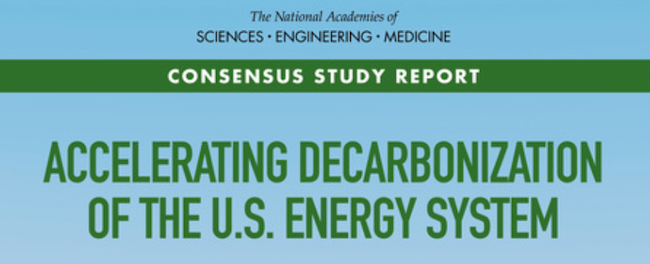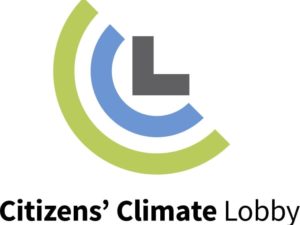
Explore the National Academies’ new report here.
By Gwyneth Lonergan
In February, the National Academies of Sciences, Engineering, and Medicine released a new report outlining the path the United States can take to successfully achieve net-zero carbon emissions by 2050. The 198-page report details various policy recommendations for the new administration and Congress. One of those recommendations is for the U.S. government to set an economy-wide “emissions budget” for the next several decades, starting with a price of $40 per ton of carbon, increased annually by 5 percent. These prices, they say, will incentivize technological innovation and significantly draw down emissions.
A many-pronged approach with big benefits
The National Academies of Sciences, Engineering, and Medicine (NASEM) is the leading scientific body in the United States, which provides “independent, objective advice to inform policy, spark progress and innovation, and confront challenging issues for the benefit of society.” Membership of one of the three honorific societies is among the highest professional honors and is given to individuals in recognition of outstanding achievements in these fields.
In this case, the NASEM’s new report is meant to inform and help guide the federal government through the transition to a clean energy economy. The report recognized that carbon pricing is not a silver bullet, and therefore outlined some additional recommendations, such as electrifying the transportation sector and increasing funding to the Department of Energy for critical research. The report also suggests that more is required to achieve net-zero than technological innovation. The Academies’ position is that equity and inclusion must be at the forefront of the legislative process and workers’ needs be addressed. For example, they propose a “GI Bill” style program to aid the new net-zero workforce.
Among the variety of benefits named from the transition were a strengthened economy and the potential for a revitalized U.S. manufacturing sector. The group’s own studies indicate a transition to net-zero would generate approximately 1 to 2 million jobs over the next 10 years. Additionally, by achieving this goal before 2050, the United States could generate 200-300 billion dollars annually in circumventing damages from weather crises occurring at an increasing rate.
Response from others in the scientific community
The statement from the National Academies is a formal endorsement of the carbon pricing method that many prominent figures in the community have championed. Dr. James Hansen, the former director of NASA’s Goddard Institute for Space Studies, wrote in a recent letter that a carbon price like the one suggested in this report is the “easiest climate policy to make global.”
Similarly, Michael Mann continues to praise the “progressive” carbon fee and dividend model in his new book “The New Climate Wars.” Mann, a newly elected member of the National Academy of Sciences, says “whether a carbon tax is progressive or regressive depends on how it is designed. A fee-and-dividend method, for example, returns any revenue raised back to the people.”
The Academies’ public support for carbon pricing comes at a time when major endorsements for climate action are coming out even beyond the scientific community, such as the U.S. Chamber of Commerce’s recent statement supporting a “market-based approach to accelerate emissions reductions,” such as a carbon tax. During her January confirmation process, Treasury Secretary Janet Yellen affirmed her long-time support of carbon pricing, recommending that the United States put a carbon tax in place and committing to prioritizing climate at the senior levels of the Treasury Department.
Looking forward
The goal of net-zero carbon emissions in less than 30 years may sound daunting, but we are on our way there. President Joe Biden has publicly advocated for net-zero emissions by 2050 and there is hope for significant climate legislation in this new session of Congress. To achieve this goal, the Academies contend there must be “rapid rates of change and unprecedented levels of funding.”
The good news? CCL is and has been putting in the work to create sustained public support for carbon pricing policies like the Energy Innovation and Carbon Dividend Act that will help our environment, our economy, and the American people. Leading climate scientist Dr. Katharine Hayhoe recently compared the fight against the climate crisis to climbing Mount Everest, saying, “Right now, [the United States] is at base camp. We can see the peak of the mountain.” Let’s keep climbing.
Gwyneth Lonergan is a communications intern for CCL and a senior at Wake Forest University pursuing a BA in Politics & International Affairs.


